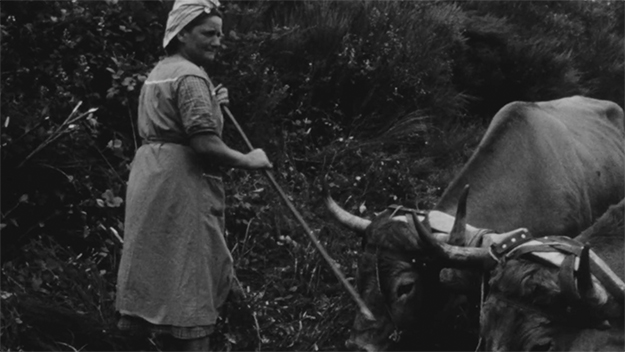Film Comment Recommends: The Films of Mario Ruspoli
This article appeared in the October 28 edition of The Film Comment Letter, our free weekly newsletter featuring original film criticism and writing. Sign up for the Letter here.

The Earth’s Forgotten (Mario Ruspoli, 1961)
The Films of Mario Ruspoli are streaming on OVID.tv.
As his long friendship and association with Chris Marker might suggest, Mario Ruspoli is something of a trickster. This collection spans the Rome-born, Paris-dwelling filmmaker’s short documentaries from 1958 to 1972, which might suggest, with their rough aesthetics and salt-of-the-earth subject matter, an underrecognized adept of cinéma vérité. But closer viewing reveals each of these unassuming, humble films—composed of handheld shots of peasants and interviews with madmen in blindingly back-lit black and white—as the product of a restless, playful mind uninterested in presenting an audience with any semblance of unadorned reality, or even truth, other than the filmmaker’s own.
Like a real-life Land Without Bread, The Earth’s Forgotten (1961) is about a village in France whose difficult terrain and weather have led its young farmers to migrate to greener pastures. As Ruspoli ambles from farm to farm chatting with locals, the camera constantly wanders away on dog’s-eye runs through fields of flowers or into odd corners of houses. Though the voices of the film’s subjects are heard clearly, recounting their difficulties and dreams, the camera lingers on faces only briefly or from odd angles, instead showing hands at work or cattle being driven down a mountain path.
When asked to name the region’s major problems, a young farmer responds simply: “individualism.” He goes on to say, over a montage of breaking plows and recalcitrant oxen, that “collectivism for the individual” is the only way forward for him. By foregrounding such voices, Ruspoli paints a layered portrait of a people’s relationship with the land that has sustained them for generations and the forces that compel them to leave it behind.







